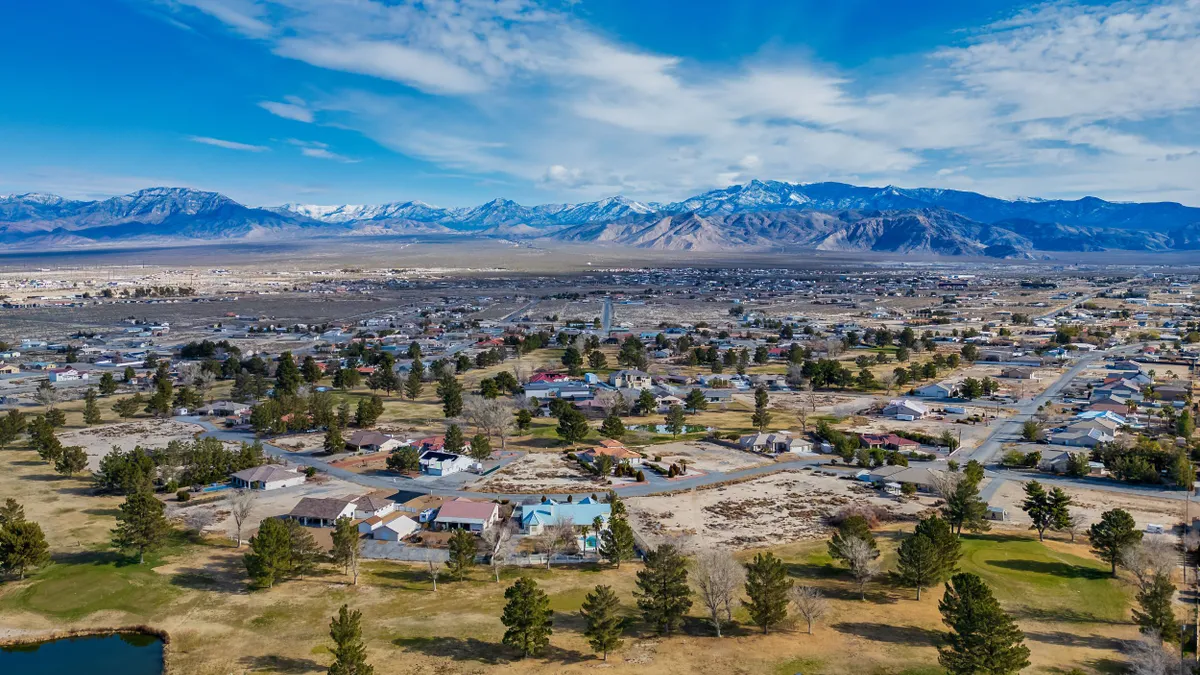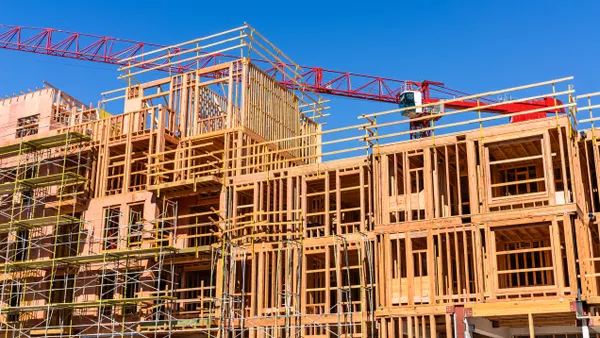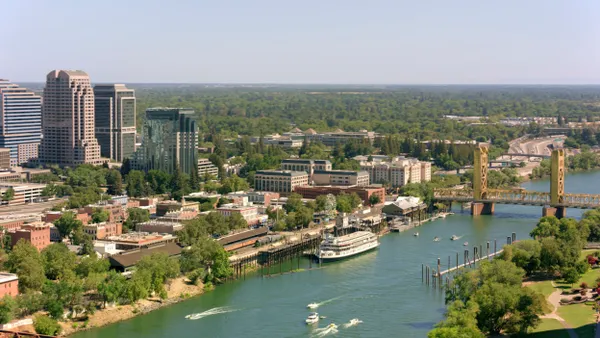Two federal departments formed a task force in March to explore how they might develop affordable housing on federal land.
The U.S. Department of the Interior oversees more than 500 million acres of federal land, and “much of it” is viable for residential development, according to Trump administration officials. The Joint Task Force on Federal Land for Housing will bring together DOI and the U.S. Department of Housing and Urban Development to work with state and local leaders to determine where housing needs are “most pressing” and identify locations on federal land that can best support residential homes, HUD Secretary Scott Turner and Interior Secretary Doug Burgum said in a joint statement.
“Working together, our agencies can take inventory of underused federal properties, transfer or lease them to states or localities to address housing needs, and support the infrastructure required to make development viable — all while ensuring affordability remains at the core of the mission,” the statement said.
The task force pledged to “reduce the red tape behind land transfers or leases to public housing authorities, nonprofits and local governments,” while also ensuring the agencies would “use our resources responsibly while preserving our most beautiful lands.”
The idea of using federal land for affordable housing is not new. In October 2024, the Biden-Harris administration sold 20 acres of unused federal land in Clark County, Nevada, for $2,000 — well below its appraised value of nearly $20 million — for the construction of affordable housing.
The federal government owns approximately 30% of the country’s total surface area, according to the U.S. Government Accountability Office, with 95% of that land managed by the Department of Agriculture’s Forest Service and DOI’s Bureau of Land Management, Fish and Wildlife Service and National Park Service. The Bureau of Indian Affairs, National Oceanic and Atmospheric Administration and the U.S. Army Corps of Engineers oversees the remainder.
States in the West, where federal land is more plentiful, could be the most impacted by the Trump administration’s new initiative to build housing on federal land, according to the Wall Street Journal. The federal government owns more than 45% of California’s land, 38% of Arizona’s land and 63% of Utah’s land, for example.
However, high-cost markets with some of the biggest housing needs are often far from any federal land and would likely see little benefit, Brett Theodos, a spokesperson for the Urban Institute, told Politico last August.
In a statement, Sierra Club Lands Protection Program Director Athan Manuel expressed skepticism of the Trump administration’s intentions for opening federal land up for development.
“Since January 20, we’ve seen numerous attempts to give away our public lands to corporate polluters and billionaires, and the mass firing of federal workers, from the Bureau of Land Management to the Department of Housing and Urban Development, two agencies that would be critical in a sincere attempt to address the housing crisis,” Manuel stated. “Donald Trump has made it clear who he thinks should reap the benefits of our public lands, and it’s not the American people.”
Nevada contains the highest percentage of federal land within its borders, 80.1%. A recent report by the Guinn Center, a nonprofit policy research center in Nevada, found that nearly half of Nevada renters are “excessively cost-burdened,” and extremely low-income households have fewer affordable unit options available than in any other state.
The report, published Feb. 18, named federal land ownership as a contributing factor to the state’s affordable housing crisis, along with an influx of wealth from other states and low wages in the state’s dominant hospitality sector.
“The report emphasizes the need for strong state-level leadership to collaborate with federal and local stakeholders in developing effective, data-driven policies tailored to Nevada’s unique housing challenges,” the Guinn Center stated.
Ryan Kushner is an editor of American City & County, which is also under Smart Cities Dive’s parent company, Informa TechTarget.










